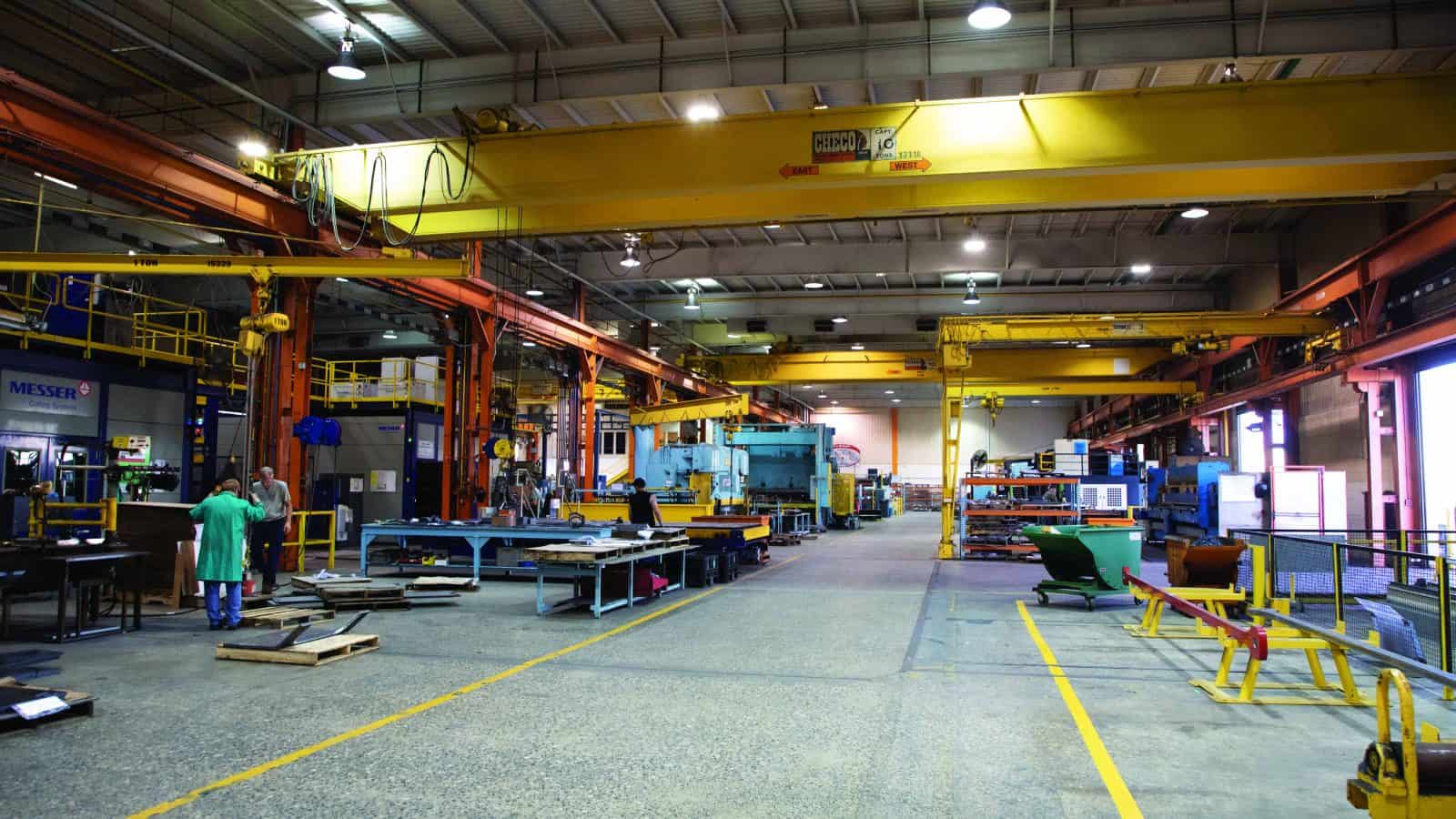Immigration Is a Personal Cause for This Manufacturing Leader
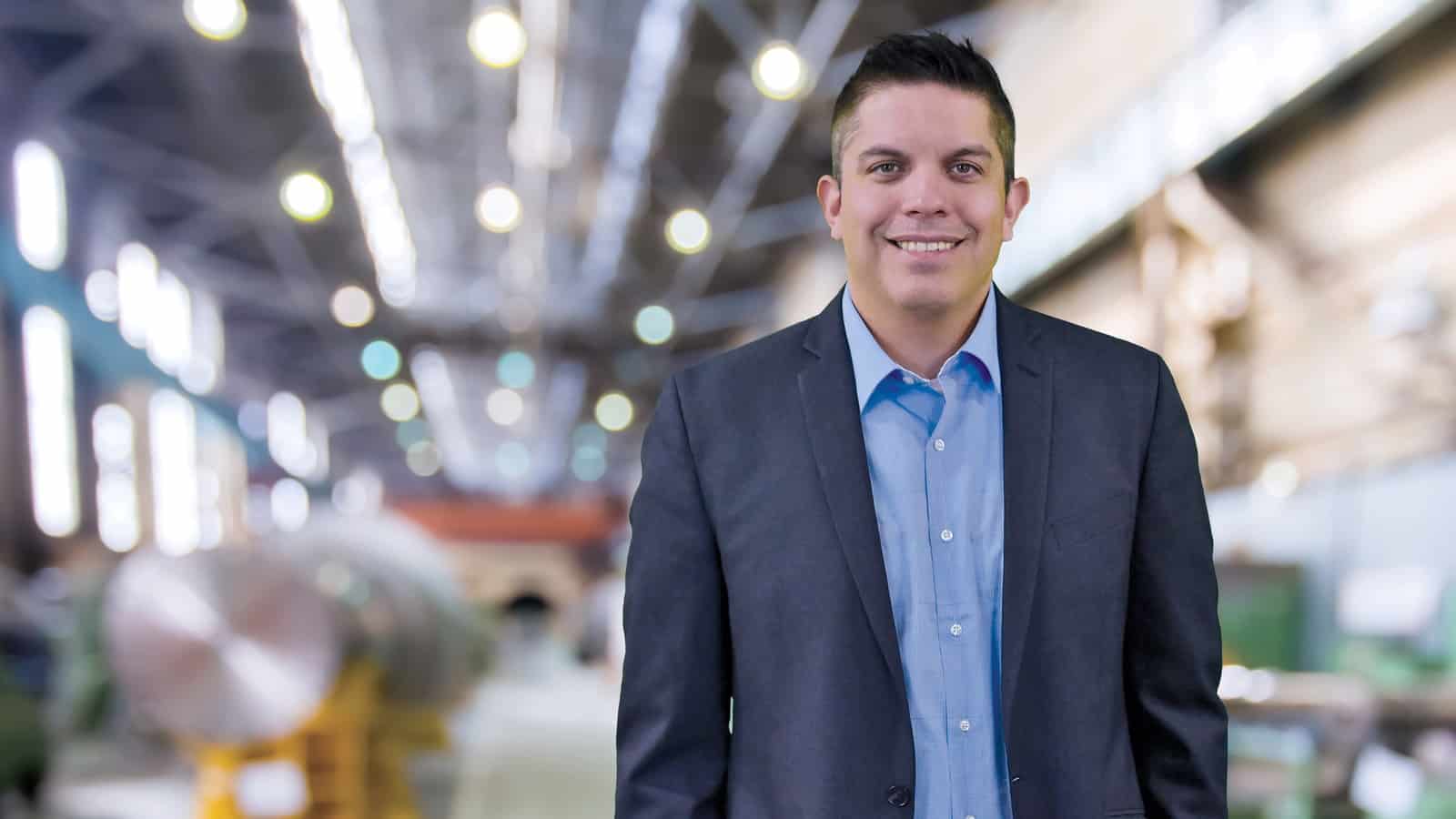
For Fernando Torres, the vice president of operations at thermoplastics manufacturer Greene Tweed, the issue of immigration is personal. In 1996, at the age of 16, Torres immigrated to the United States. He was undocumented for a time, and he was forced to figure out how to stay afloat.
His story: Alone, without stable residency and barely speaking the language, Torres had a harrowing start in the U.S. But he worked his way through community college, where he excelled in math courses even though he wasn’t yet fluent in English. Torres attributes his love for math and science to his grandfather, who he says is the smartest man he’s ever met.
- “I had a difficult situation at the age of 16 in a new country without knowing the culture or the language, asking, what am I going to do?” said Torres. “Living in this country, it’s the country of opportunities, so I had to find ways to make it work and pursue the American dream.”
- “But, as an undocumented person, the jobs available were not pretty. Whether I was washing dishes at a seafood restaurant or cutting the lawns in Arizona in the middle of the 120-degree weather summers, I just had to find a way to survive.”
Entering the industry: After community college, Torres was accepted into Arizona State University’s program for aerospace engineering—and eventually, he found a place in the commercial sector at Greene Tweed. Today, he’s a U.S. citizen, and he’s just as passionate as ever about the value of immigration.
Immigration and manufacturing meet: Torres has seen the skills gap in manufacturing firsthand, and he knows how difficult it is to fill critical jobs. That’s one reason why immigration is so important to the manufacturing industry, he pointed out.
- “There is a shortage of people,” said Torres. “Skilled laborers are very difficult to find in our country, and retirements are outpacing anyone that’s coming in. There’s not enough people to run our factories—and if we want the economy to grow, we need people to grow it.”
An economic issue: Torres also emphasized that a person’s stance on the issue of immigration in manufacturing should come down to economic considerations.
- “We need to stop talking about immigration as a political issue—it’s a business issue,” said Torres. “We don’t have enough people to grow this economy internally. And if we can’t grow it internally, we have to open factories elsewhere. So this isn’t a political need, it’s an economic need.”
NAM’s push for change: NAM has long fought for commonsense immigration reform and outlined a series of proposals in A Way Forward—a road map that covers border security, reforms to legal immigration and permanent solutions for populations like DREAMers that are facing uncertainty.
The last word: “Immigrants are here to give, not to take away from this country—and we give a lot,” said Torres. “If it wasn’t for the waves of immigration during the last century to the United States, we wouldn’t be the number one economy in the world.”
Immigration Is a Personal Cause for This Manufacturing Leader

For Fernando Torres, the vice president of operations at thermoplastics manufacturer Greene Tweed, the issue of immigration is personal. In 1996, at the age of 16, Torres immigrated to the United States. He was undocumented for a time, and he was forced to figure out how to stay afloat.
His story: Alone, without stable residency and barely speaking the language, Torres had a harrowing start in the U.S. But he worked his way through community college, where he excelled in math courses even though he wasn’t yet fluent in English. Torres attributes his love for math and science to his grandfather, who he says is the smartest man he’s ever met.
- “I had a difficult situation at the age of 16 in a new country without knowing the culture or the language, asking, what am I going to do?” said Torres. “Living in this country, it’s the country of opportunities, so I had to find ways to make it work and pursue the American dream.”
- “But, as an undocumented person, the jobs available were not pretty. Whether I was washing dishes at a seafood restaurant or cutting the lawns in Arizona in the middle of the 120-degree- weather summers, I just had to find a way to survive.”
Entering the industry: After community college, Torres was accepted into Arizona State University’s program for aerospace engineering—and eventually, he found a place in the commercial sector at Greene Tweed. Today, he’s a U.S. citizen, and he’s just as passionate as ever about the value of immigration.
Immigration and manufacturing meet: Torres has seen the skills gap in manufacturing firsthand, and he knows how difficult it is to fill critical jobs. That’s one reason why immigration is so important to the manufacturing industry, he pointed out.
- “There is a shortage of people,” said Torres. “Skilled laborers are very difficult to find in our country, and retirements are outpacing anyone that’s coming in. There’s not enough people to run our factories—and if we want the economy to grow, we need people to grow it.”
Read the full story here.
Housing Starts Soar

New residential construction in the U.S. soared to their highest levels in more than a year in May, according to data from the U.S. Census Bureau.
What’s going on: Construction starts rose 21.7% from April to May, to 1,631,000 units at the annual rate from 1,340,000 units, the largest increase in these numbers in more than a year.
- Single-family homebuilding jumped 18.5% to 997,000 in May from 841,000 in April. It’s a level last seen in June 2022.
- Multifamily housing starts increased 27.1%, to a 14-month high.
Permits: New housing permits, which are a proxy for future residential building, increased 5.2% from April to May.
- Single-family permits rose 4.8%, up for the fourth consecutive month, to a 10-month high
- Multifamily permits increased 5.9% in May.
Overall: Housing starts have risen 5.7% overall since May 2022, but starts of single-family homes have dipped 6.6% year-over-year, even in the face of solid gains in the most recent data.
- On a year-over-year basis, housing permits have declined 12.7% from May 2022, with permits for single-family homes falling even more, by 13.2%.
The NAM’s take: “Issues of affordability have impacted the new housing starts negatively over the past year, but Americans have become accustomed to the ‘new normal’ in mortgage rates,” said NAM Chief Economist Chad Moutray.
- “Would-be homebuyers are coming back into the market. With little inventory, the strong growth in housing starts [was] encouraging.”
Immigration Drove Labor Force Growth in 2022

Immigrants helped fill worker shortages last year, providing 60% of workforce growth according to Bureau of Labor Statistics data, reports Bloomberg Government (subscription).
The data: “Roughly 1.8 million foreign-born workers joined the labor force in 2022, compared with 1.3 million native-born ones, according to Bureau of Labor Statistics data published Thursday.”
- “The nation’s nearly 31 million immigrant workers now make up 18.5% of the labor force, close to a record-high share and above pre-Covid levels.”
Filling the gap: Immigrants are taking more roles in industries experiencing labor shortages, as compared to before the pandemic.
- “Almost 10% of immigrant workers had jobs in construction last year, up from 9.1% in 2019, according to the BLS. The share of foreign-born workers in health-care support occupations also increased.”
The NAM says: “With over 800,000 job openings in manufacturing over the past 12 months, manufacturers know immigration is an essential part of the workforce solution to build a stronger, more competitive America, and that’s why the NAM is unrelenting in leveraging every opportunity to advance our immigration plan ‘A Way Forward’ with key Hill and administration leaders and the press,” said NAM Director of Human Resources and Innovation Policy Julia Bogue.
“Still a Beacon”: Timmons Discusses Permitting, Immigration and More
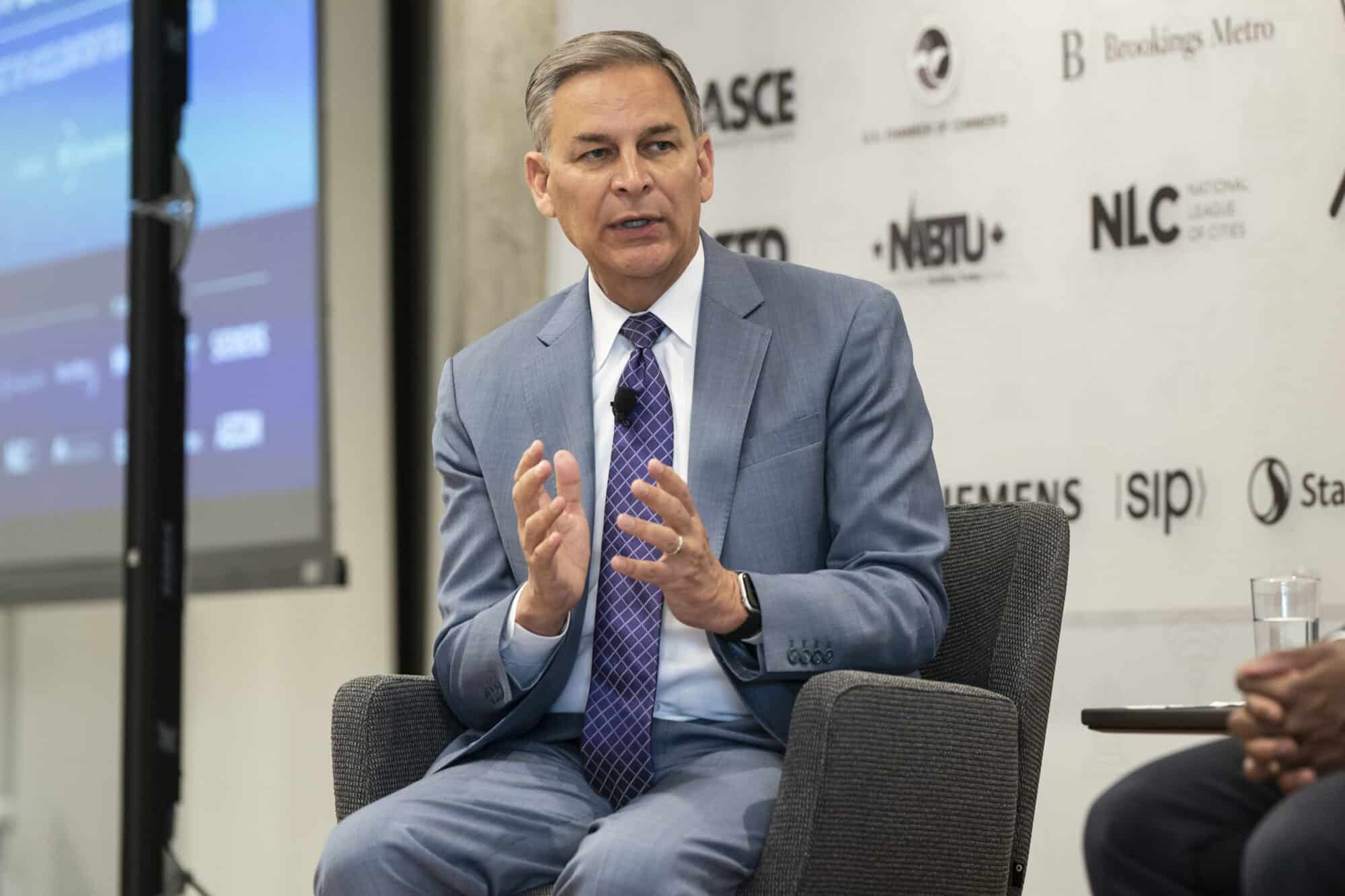
Streamlining the nation’s permitting process, filling open manufacturing positions and reforming the U.S. immigration system—these are just a few of the actions the U.S. must take improve American lives and to bolster the economy, NAM President and CEO Jay Timmons said Tuesday.
America still works: Timmons was one of three panelists at “Building the Workforce of Tomorrow Today,” an event hosted by United For Infrastructure, a program of Accelerator for America Action. He told audience members that manufacturers have before them “a great opportunity.”
- “What really excites me the most is, when you look at [the] CHIPS and Science [Act], when you look at [the] Infrastructure Investment [and Jobs Act] and when you look at—hopefully—permitting reform, what you see is, America still works,” he said.
- “We have this moment in time where I think we have to prove again to the world that America is a beacon, it is a democracy that provides opportunities for everyone and allows individuals to succeed and to rise on that ladder of success. …. For manufacturers, this is a great opportunity.”
Workforce challenge: Timmons discussed the primary workforce challenge before the sector—a projected growth of unfilled jobs—and how the NAM is aiming to overcome it.
- “We have about 800,000 open jobs in the sector today and … we have to hire 4 million people before 2030,” he said, referring to the findings from a joint study by the NAM’s 501 workforce development and education affiliate, the Manufacturing Institute, and Deloitte.
- The NAM and MI are seeking to fill those jobs through the work of several initiatives, Timmons continued. These include perception-changing programs such as Creators Wanted, the Toyota-founded Federation for Advanced Manufacturing Education program (now operated by the MI), Women Make America and the promotion of second chance hiring (employment of individuals with previous, non-violent involvement in the criminal-justice system).
Education: The importance of reaching the next generation of manufacturers early cannot be overstated, Timmons told the audience.
- He talked about the high-tech donations—robotics, CNC machines and more—by manufacturers to schools such as Rankin Technical College in St. Louis, Missouri, and Palatine High School in Palatine, Illinois. This machinery is used in programs that aim to interest students in manufacturing careers.
- “I think we have obligation to” make this sort of investment, Timmons said. “I’m very proud of our manufacturers for stepping up to it.”
Immigration: Perhaps the most pressing issue before the U.S., however, is immigration, Timmons told the audience.
- “Today, more so than ever before, we have an economic reality that we have to address,” said Timmons, who referenced the NAM’s policy blueprint on immigration reform, “A Way Forward,” during his talk.
- “We have what, 13 million undocumented folks in this country? … We need to hold our officials accountable for coming up with a plan that is workable and humane and will actually help the economy.”
What’s Going on with Title 42?

Title 42 has been a fixture in the news in recent days—but what is it and what does its recent end mean? We break it all down here.
What’s going on? Title 42, which went into effect March 2020, was a COVID-19-era policy that allowed the U.S. to expel migrants for health reasons. Under it, more than 2.6 million people were sent back to their home countries, according to The Washington Post (subscription).
- Now that Title 42 has concluded, authorities are only permitted to expel individuals using Title 8, pre-pandemic immigration rules, The New York Times (subscription)
What should we expect? Though an expected weekend “surge” in border crossings did not materialize—in fact, there was a 50% drop in the three days ending Monday, according to the Associated Press—“the number of crossings is still exorbitantly high, with U.S. Customs and Border Protection stopping more than 10,000 immigrants per day this week, the highest levels ever,” the Washington Examiner reports.
- And southern border communities remain on “high alert” for a potential near-term spike in migrant crossings, according to CNN.
How is the administration addressing the change? The Department of Homeland Security—which has issued a proposed rule on asylum—put out a six-pillar plan to address an influx of migrants at the southern border. The measures aim to:
- Increase resources, personnel, transportation and medical support and facilities;
- Bolster CBP processing efficiency;
- Move quickly to mitigate potential overcrowding of CBP stations and alleviate the burden on the surrounding border communities;
- Administer consequences for unlawful entry, including removal, detention and prosecution;
- Boost the capacity of nongovernmental organizations to take in migrants following processing by CBP, during the wait for results of their immigration removal proceedings;
- Target and disrupt the criminal organizations and smugglers that profit off vulnerable migrants and seek to move illegal drugs into the U.S.; and
- Collaborate with international and federal authorities to deter undocumented migration.
What’s Congress doing? The House passed a border package, the Secure the Border Act of 2023, the day Title 42 expired.
- The House measure—which the White House has said it would veto—“would mandate that Customs and Border Protection hire enough Border Patrol agents to maintain a staff of 22,000 and develop a plan to upgrade existing technology to make sure agents are well-equipped. It also would require the homeland security secretary to resume construction of the border wall,” according to NBC News.
- The Senate has two proposals to secure the border. One, by Sens. Thom Tillis (R-NC) and Kyrsten Sinema (I-AZ), would give the U.S. temporary authority to expel for two years migrants who try to enter illegally or without proper documents. The other, the Securing Our Border Act from Sen. Tim Scott (R-SC) and others, would fund “nonintrusive border inspections” and border-wall construction, as well as retention bonuses for CBP agents, and would end the current “catch and release” policy.
What’s the NAM doing? The NAM continues to advocate immigration reform through “A Way Forward,” its immediately implementable policy blueprint for legislators, meetings with key congressional leaders, member-story and news coverage (see here, here and here for a few examples), the Competing to Win Tour and more.
NAM, Arizona Chamber Host Sinema for Immigration Panel
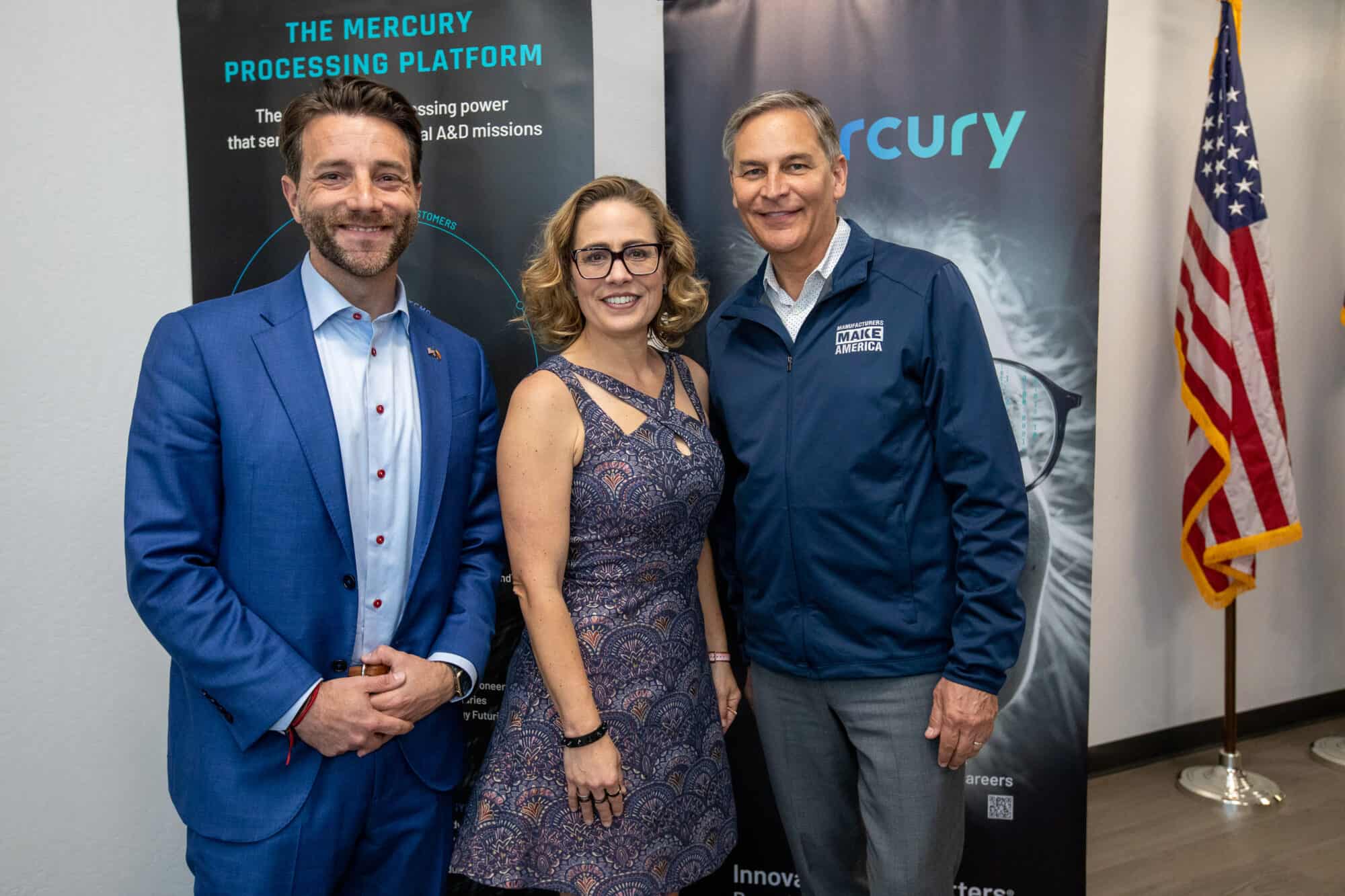
Immigration reform is an economic necessity—and it needs to happen now in order to spur economic growth and keep manufacturing in the U.S. competitive, NAM President and CEO Jay Timmons told an audience at a recent roundtable in Phoenix featuring Sen. Kyrsten Sinema (I-AZ).
- “Manufacturers want to build consensus,” Timmons said. “Most Americans agree that our immigration system is broken. And we need to fix it, whether it’s major legislation or targeted, specific fixes.”
What went on: The NAM and the Arizona Chamber of Commerce & Industry hosted Sinema last Friday for a discussion on fixing immigration policy and other matters critical to manufacturers.
- A seven-person panel—which included Valley Forge & Bolt CEO Michele Clarke and Intel Corporation State Government Relations Senior Director Jason Bagley—talked about the current challenges facing manufacturers and the urgent need for solutions on immigration, workforce development, tax policy and more.
- Held at the Phoenix facilities of defense-electronics company Mercury Systems, the roundtable was part of the NAM’s Competing to Win Tour, a facility-visit and discussion circuit that began in February. Its aim: to bolster manufacturing competitiveness through conversations between manufacturers, political and community leaders, employees and the media.
What needs fixing: “As I travel across Arizona, I hear from employers of all sizes about the challenges they face filling jobs,” Sinema told the audience of manufacturers and industry stakeholders. “This is especially true in the manufacturing sector. That is why I’ve been hard at work identifying realistic solutions.”
- Indeed, the workforce “problem isn’t going away,” added Timmons, who moderated the event. “We have nearly 700,000 open jobs right now. And 4 million manufacturing jobs will need to be filled by the end of the decade, 2.1 million of which could go unfilled if more people are not brought into the industry … according to research from Deloitte and the Manufacturing Institute, the NAM’s workforce development and education partner.”
How to fix it: Part of the solution is right in front of us, Timmons said.
- “There are many policy fixes that could build our pipeline of skilled employees—people who can excel in manufacturing positions while contributing to our society and building lives for themselves in America.”
- He referenced “A Way Forward,” the NAM’s policy blueprint featuring implementable action items for legislators on immigration reform and related issues, such as the undocumented population and green-card backlog.
NAM on the air: Timmons and Arizona Chamber CEO Danny Seiden were guests on Phoenix radio station KTAR News’ “Mike Broomhead Show” to discuss the Competing to Win tour and the importance of manufacturing jobs.
NAM Joins Arizona Business Leaders to Discuss Immigration Reform with Sen. Kyrsten Sinema
Phoenix, AZ – National Association of Manufacturers President and CEO Jay Timmons and the Arizona Chamber of Commerce & Industry President and CEO Danny Seiden jointly hosted Sen. Kyrsten Sinema (I-AZ) for a discussion with members of the Arizona Manufacturers Council and other local business leaders today at Mercury Systems in Phoenix, Arizona. The conversation focused on the manufacturing workforce and how immigration reform is urgently needed to strengthen it.
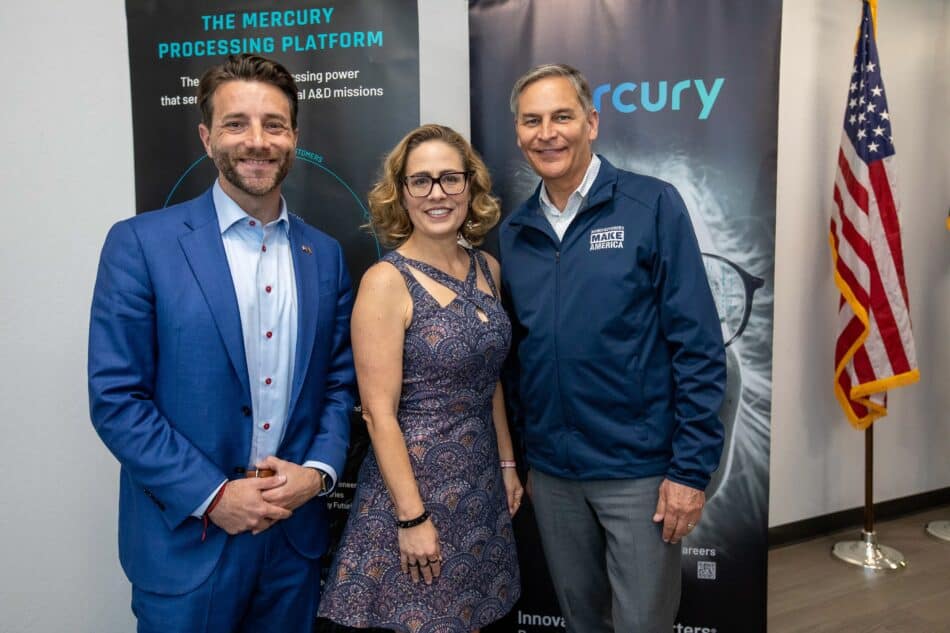
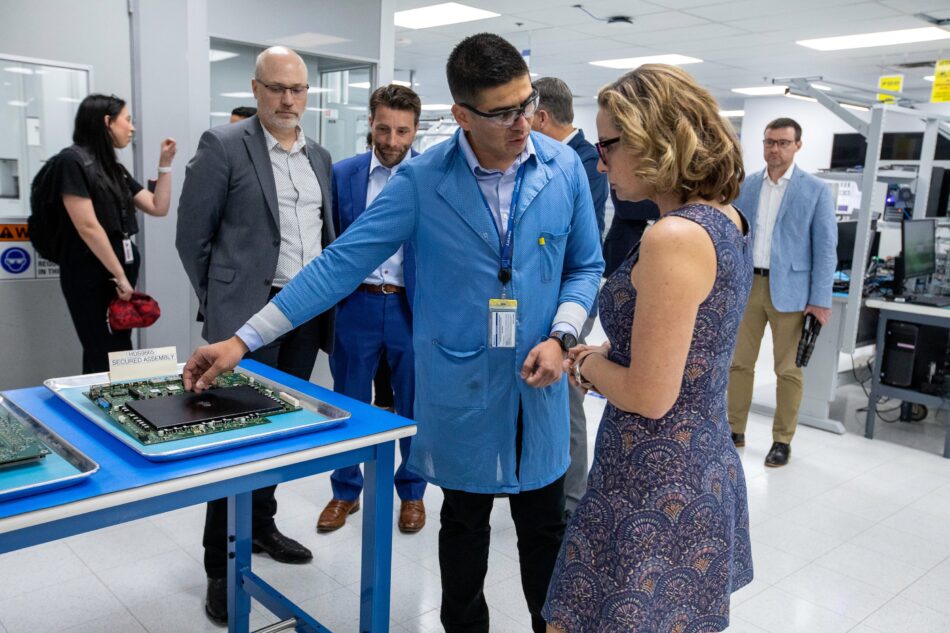
“The majority of Americans agree that the United States has a broken and unreliable immigration system, and our industry is united in the belief that this broken system is harming manufacturers’ competitiveness. With nearly 700,000 open jobs in manufacturing today and millions to fill this decade, immigration must be part of the solution,” said Timmons. “We must stay true to the values that have made America exceptional and kept manufacturing strong: free enterprise, competitiveness, individual liberty and equal opportunity, and that requires a functioning immigration system that addresses our economy’s needs, as well as security and humanitarian concerns. Today’s discussion is an important step in the path toward building consensus for advancing immigration reforms, and we thank the Arizona Chamber of Commerce & Industry and Sen. Sinema for their leadership.”
“Arizona has emerged as a premier destination for manufacturing growth, thanks to the pro-business policies we’ve implemented on a state level that have cut regulations and created an attractive tax environment for job creators to locate and expand,” said Chamber President and CEO Danny Seiden. “Of course, there is so much to be done at the federal level to ensure the continued competitiveness and success of our state and nation’s manufacturing industry – and immigration and workforce must be a part of the discussion. We are grateful for the partnership and leadership of Sen. Sinema and NAM in addressing this critical issue.”
“Mercury was delighted to host Sen. Sinema and global technology manufacturing leaders for this important conversation,” said Tom Smelker, Mercury Systems’ vice president and general manager of microsystems. “The vast majority of advanced semiconductor packaging is done in southeast Asia today, and the United States recognizes the need for more secure domestic capacity. But our skilled labor workforce is constrained, and we need a faster path to bring in more talent.”
Background: The NAM’s immigration policy recommendations are outlined in “A Way Forward,” a plan originally released in 2019 and recently updated to reflect current challenges. The NAM’s “A Way Forward” proposal identifies seven core areas of action for Congress and the administration to take:
- Strengthen border security through physical infrastructure and best-in-class technology.
- Prioritize America’s workforce needs through reforms to the legal immigration system.
- Reform nonimmigrant visas and temporary worker programs to reflect employer needs, including a fund to support STEM programs so that we can reduce the need for these types of visas in the future.
- Provide a permanent and compassionate solution for populations facing uncertainty, including the Dreamers, who were brought here as children and know no other home.
- Reform asylum and refugee programs for a more orderly and humane system, including asylum standards consistent with our values.
- Fix the problem of the unauthorized population with a firm reset, requiring an orderly process of review, including financial penalties for those who seek to become legal and deportation for those who choose to stay in the shadows.
- Strengthen the rule of law, with a focus on gang violence and on requiring localities to cooperate to advance the enforcement of immigration priorities.
-NAM-
The National Association of Manufacturers is the largest manufacturing association in the United States, representing small and large manufacturers in every industrial sector and in all 50 states. Manufacturing employs nearly 13 million men and women, contributes $2.90 trillion to the U.S. economy annually and accounts for 55% of private-sector research and development. The NAM is the powerful voice of the manufacturing community and the leading advocate for a policy agenda that helps manufacturers compete in the global economy and create jobs across the United States. For more information about the NAM or to follow us on Twitter and Facebook, please visit www.nam.org.
What’s Next for WOTUS?

The future of the Biden administration’s too-stringent rule governing the “waters of the United States” remains unclear following the president’s veto of legislation that would have overturned it, according to E&E News’ GREENWIRE (subscription).
What’s going on: “Republican lawmakers pushed almost immediately for a veto override targeting the…WOTUS rule on Thursday in the hours after President Joe Biden nixed a resolution that would roll it back.”
- A Republican-led measure in the House and Senate using the Congressional Review Act to block the overly restrictive WOTUS rule passed both chambers of Congress last month.
- House Republicans say they will push for a veto override.
Why it’s important: The Biden administration’s version of the rule replaced NAM-backed regulations from the previous administration.
The background: The Supreme Court is expected to make a decision this year on Sackett v. EPA, a case brought by an Idaho couple who have been blocked from building a house on their land for more than 15 years after the Environmental Protection Agency said part of the property was a wetlands.
- The NAM and many GOP congressional leaders previously urged the administration to await the ruling on this case before releasing a final WOTUS rule.
- Issuing a new rule prior to a Sackett v. EPA decision only confuses things for manufacturers, making hiring and investment more difficult, NAM Senior Vice President of Policy and Government Relations Aric Newhouse said in December, following the release of the new rule.
What’s next: While “the fate of WOTUS remains murky as ever,” according to the article, several states have frozen the new rule.
- “Texas and Idaho secured an injunction on March 20, the day WOTUS took effect in the rest of the country. Those states are now subject to 1986 regulations, while the other 48 states are operating under the Biden administration’s definition—a split that has left the regulated community baffled as to how to operate nationally.”
The NAM says: “By vetoing the bipartisan Congressional Review Act on the WOTUS rule, the president removed an item that manufacturers greatly desire: regulatory certainty,” said NAM Vice President of Energy and Resources Policy Brandon Farris.
- “While the country awaits the decision in Sackett v. EPA, numerous investments in much-needed energy and infrastructure projects may be put on hold due to confusion over the new definition and potential added costs of compliance.”
The NAM Revives High-Level U.S.–U.K. Talks
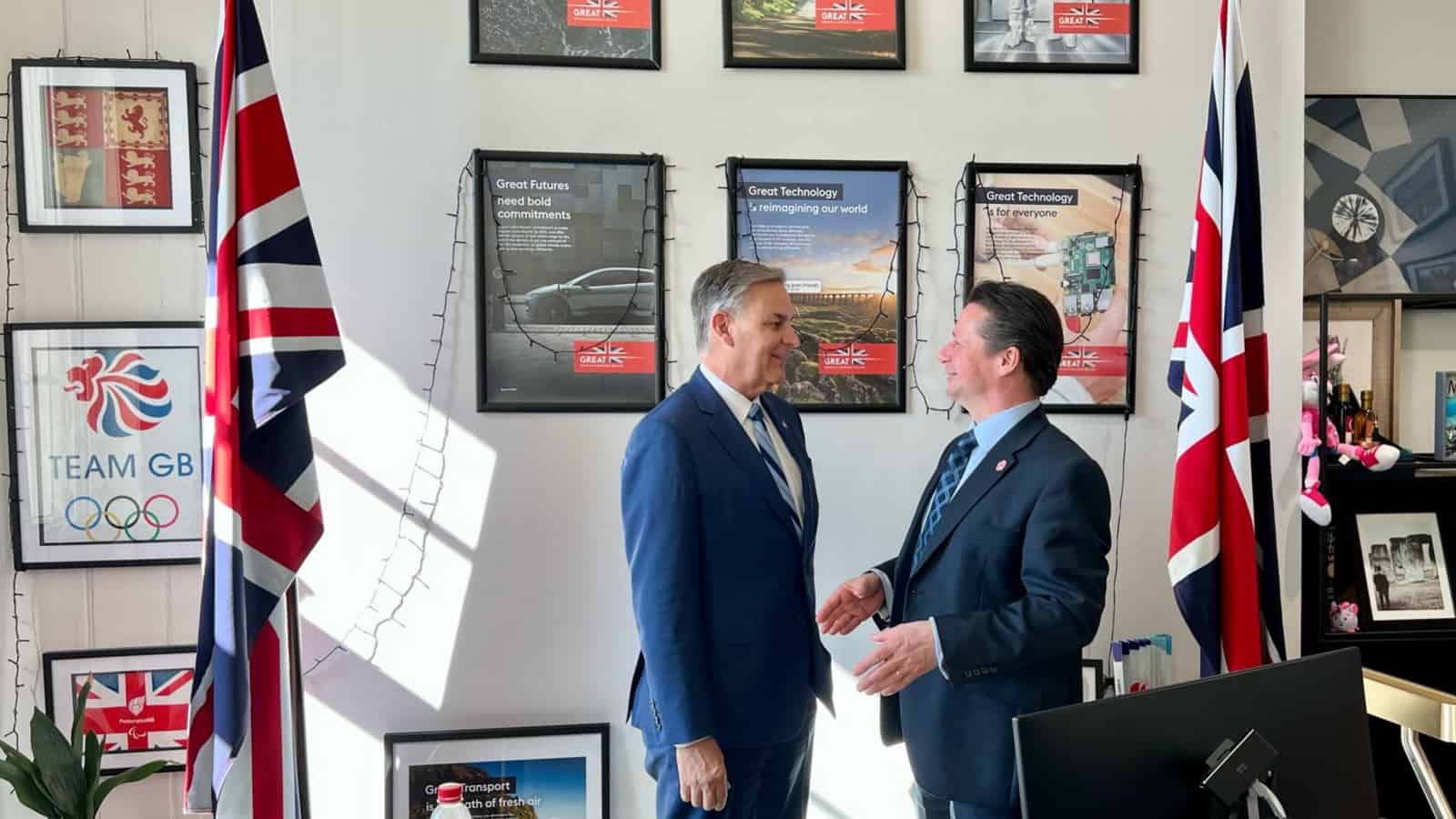
The NAM’s Competing to Win Tour in Europe moved on to London early this week, highlighting the imperative to shore up the U.S.–U.K. relationship—and to urgently address other barriers, like permitting reform and workforce shortages, to enable the U.S. to help allies in the face of Russian aggression and other geopolitical threats.
The issue: Russia’s unprovoked war in Ukraine, the aftermath of the worldwide pandemic and China’s quest for global leadership create a new urgency for expanded trade opportunities between democratic countries.
- The U.S. and the U.K. must work together to shore up supply chains, enhance energy security, boost resiliency and create growth, as NAM President and CEO Jay Timmons emphasized.
The details: Timmons crisscrossed London on Monday and Tuesday, promoting the manufacturing industry and reinforcing its priorities with senior government ministers and officials, including:
- Nigel Huddleston MP, the U.K. minister of state for international trade
- Jonathan Reynolds, Labour Party shadow business secretary (one of the architects of the Labour Party’s industrial plan)
- Jane Hartley, U.S. Ambassador to the Court of St. James’s
Support at home: During his visit, Timmons did an interview with CNN International to discuss the NAM’s new Outlook survey, which found that 77% of manufacturers want to see more trade agreements with Europe.
Making industry connections: At the NAM’s sister organization Make UK, Timmons joined a roundtable with CEO Stephen Phipson and addressed some of Britain’s leading manufacturing companies.
- He spoke about how the U.S. and the U.K. can unlock new trading opportunities going forward and bolster democracy by strengthening commerce.
- The two groups also reaffirmed their commitment to share market intelligence, data and policy work, as well as to facilitate visits for economic delegations promoting trade, investment and commercial opportunities.
- They also voiced their continued and mutual support of the Ukrainian people and of the democratic institutions in their own countries.
What they said: “The ties between the UK and United States go back a long way and we have significant political, economic and trade connections,” said Phipson. “Relations with the US are vital and its market is the second most important for UK goods. In a post-Brexit world, it is likely to assume ever greater importance as part of our efforts to boost global trade.”
- “As world events have made abundantly clear, strengthening democracy, the free enterprise system and strategic alliances in our countries and around the world is essential to our future and the fight against tyranny,” said Timmons. “As the U.S. and the U.K. take steps to build a stronger, more open and secure economic relationship, the NAM urges our leaders to move toward a new U.S.–U.K. market-opening trade agreement that includes strong, clear and enforceable outcomes.”
Meeting manufacturers: In addition, Timmons met with manufacturers that have operations or pending operations in both the U.K. and the U.S. Energy security and regulatory certainty, as well as the worker shortage in the industry, also took center stage in these discussions.
Bottom line: “The tour’s time in London matters to manufacturers in the United States because it strengthens the ‘special relationship’ between the U.S. and the U.K. and boosts the prospects for enhanced cross-Atlantic trade, supporting manufacturing jobs in both countries,” said Ken Monahan, NAM Vice President of International
